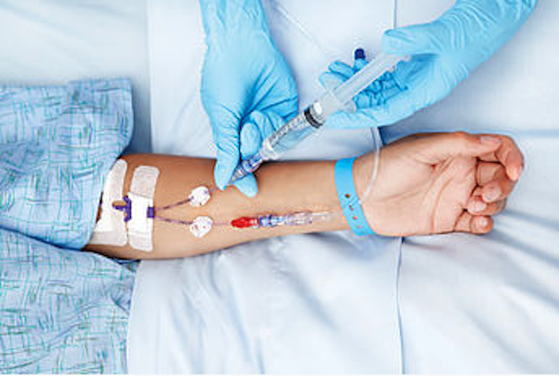13 Steps to Survive the Heat

I was alarmed the other day when a client texted me that he had lost 5 pounds after running. He is an athletic 200 pound man, but heavy water loss, caused by running in this heat, could have serious consequences. The worst: death by heat stroke.
Before a heat stroke occurs, people show signs of exhaustion, weakness, perhaps headaches and dizziness. My client was so weak, he couldn't finish his run.
How does your body's system break down to cause heat stroke?
Normally, water carries heat away from your internal organs. The heat travels through your bloodstream to your skin, causing you to sweat, preventing serious damage to occur. As the sweat evaporates, this allows you to cool off and maintain a safe body temperature, optimal functioning, and health.
But when the fluid in your blood runs out of water, your body's core literally starts cooking, you stop sweating and organs begin to breakdown.
Daily water intake must be balanced with losses to maintain total body water. Once you start feeling thirsty, you've probably lost about 1 percent of your body water and are dehydrated. With a 2 percent water loss, you could experience serious fatigue and cardiovascular impairments. It's important to note that individual fluid needs differ depending on your sweat rate, the environmental temperature, your clothing, humidity and other factors.
Hydration tips
As summer temperatures hit, here are a number of important tips.
– Drink enough water to prevent thirst.
– Monitor fluid loss by checking the color of your urine. It should be pale yellow and not dark yellow, too smelly or cloudy.
– For short-duration (less than 60 minutes), low-to-moderate-intensity activity, water is a good choice to drink before, during and after exercise.
– Any time you exercise in extreme heat or for more than one hour, supplement water with a sports drink that contains electrolytes and 6 percent to 8 percent carbohydrates. This prevents "hyponatremia" (low blood sodium), which dilutes your blood and could also lead to serious impairment and death.
– Begin exercise well-hydrated. Drink plenty of fluids the day before and within the hour before, during and after your exercise session.
– Avoid alcohol the day before or the day of a long exercise bout, and avoid exercising with a hangover.
– Consider all fluids, including tea, coffee, juices, milk and soups (though excluding alcohol, which is extremely dehydrating). The amount of caffeine in tea and coffee does not discount the fluid in them, even if they have a slight diuretic effect, according to the most recent report by the National Research Council's Food and Nutrition Board.
– Eat at least five cups of fruits and vegetables per day for optimum health, as they all contain various levels of water and the all-important nutrient potassium.
– During exercise, for those who experience high sodium losses, eat salty foods in a pre-exercise meal or add an appropriate amount of salt to sports drinks consumed during exercise. Orange juice is high in potassium. Dilute juices, such as V-8 or orange juice, 50/50 with water so that the drinks are 6 percent carbohydrate solutions (the same as sports drinks), which will empty from your stomach quicker than 100 percent juice (juices are naturally 12 percent solutions), allowing the electrolytes and water to quickly reach your heart and organs.
– Following strenuous exercise, you need more: Protein to build muscle, carbohydrates to refuel muscle, electrolytes to replenish what's lost in sweat, and fluids to help rehydrate the body. Low-fat chocolate milk is a perfect, natural replacement that fills those requirements.
– You can also replace fluid and sodium losses with watery foods that contain salt and potassium, such as soup and vegetable juices.
– For long hikes, when you'll need food, dried fruit and nut mixtures contain high amounts of potassium, sodium, protein, carbs and calories — though continue to drink plenty of water.
– To determine your individualized need for fluid replacement: During heavy exercise, weigh yourself immediately before and after exercise. If you see an immediate loss of weight, you've lost valuable water. Drink 3 cups of fluid for every pound lost; use this figure to determine the amount of water (or sports drink) you'll need to drink before and during your next exercise session to prevent weight/water loss in the future.
